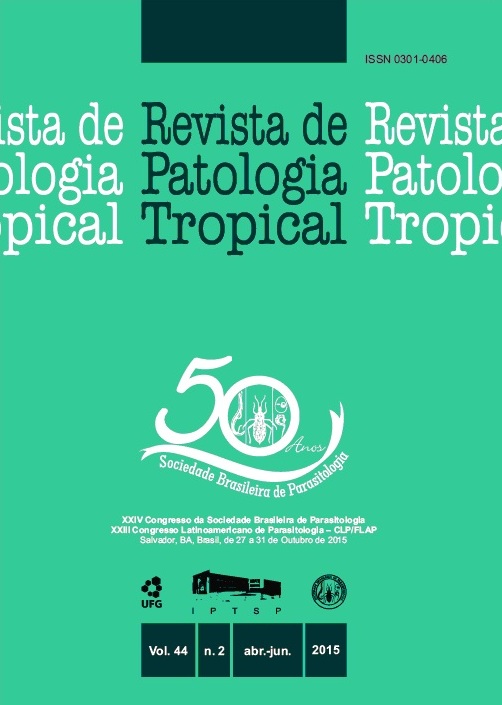AMBISPECTIVE COHORT STUDY OF BOVINE CYSTICERCOSIS FROM SLAUGHTERHOUSES WITH MUNICIPAL INSPECTION SERVICE (SIM) IN THE SOUTHERN RIO GRANDE DO SUL, BRAZIL.
DOI:
https://doi.org/10.5216/rpt.v44i2.36644Keywords:
Cysticercosis, economic losses, risk factors, bovines.Abstract
Between 2009-2013, of 15,408 cattle slaughtered in abattoirs with Municipal Inspection Service (SIM)in the city of Pelotas, RS, , 389 were identified with cysticercosis problems, which represented anaverage prevalence of 2.52%. The temporal distribution of prevalence showed the highest frequencies,with significant differences in the months of May and December, with an odds ratio (OR) 1.35 (1:06<OR <1.71), ?2 = 6.32 and p = 0.0113. Reevaluating 18 weeks of the higher prevalence period, toinvestigate the causes of environmental contamination, the months of July, January and Februaryin the period 2009-2013, had higher rainfall 100 mm, therefore indicating a factor for dispersionof eggs of T. saginata. Slaughterhouses with SIM, are stocked with a few animals from small farms,mostly family farms. These increase manpower especially in the months of July, December, Januaryand February, when the sons of farmers are on school holidays and help in the handling of animalsand also in agriculture. They primarily assist in the soybean harvest (January-May), the maize harvest(December-June), tobacco harvest (December-February) and bean harvest (October-March).Therefore, there is a higher concentration of likely sources of infection in the field. In calculating theindex of endemic bovine cysticercosis by means of quartile criterion based on retrospective data forthe period 2009-2013, the third quartile (alert zone), had the expected prevalence described above.Downloads
Downloads
Published
How to Cite
Issue
Section
License
The manuscript submission must be accompanied by a letter signed by all authors stating the full name and email address, confirming that the material has not been published or is under consideration for publication elsewhere, and agreeing to transfer copyright in all media and formats for Journal of Tropical Pathology. The authors will not be paid for published articles. They are solely responsible for the content of those articles, even if the Editor holds the right to adjust them to the norms of the journal.
The reviewers will not be paid for the peer review process.

